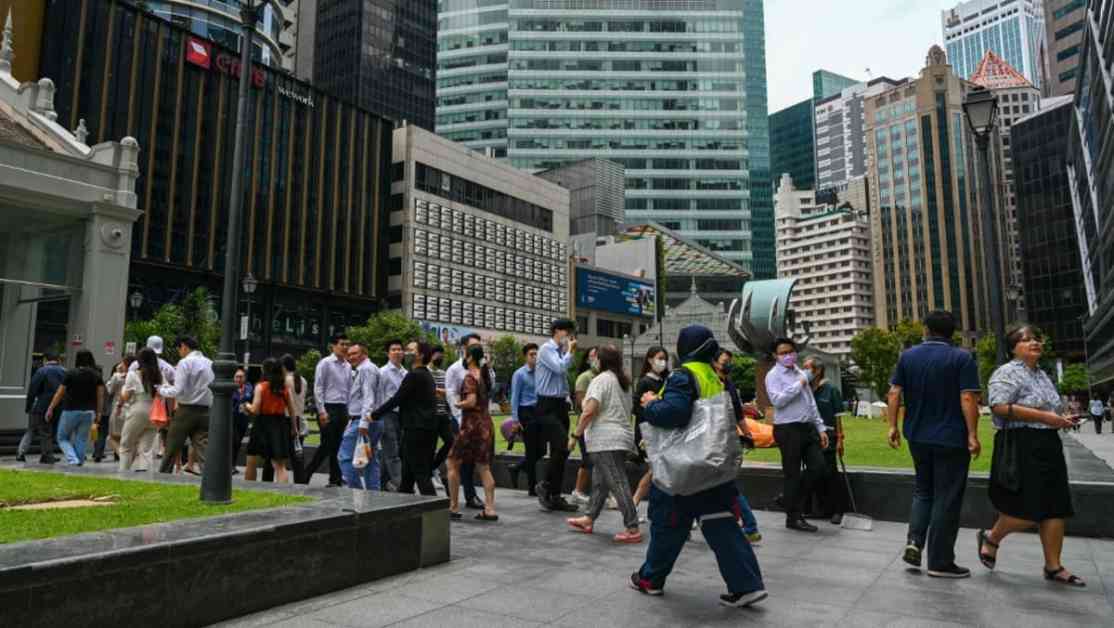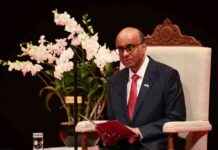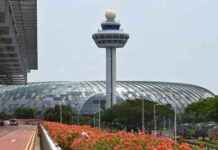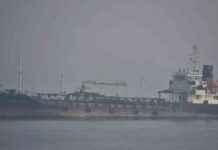Singapore’s Potential Gains from Global Trade Shifts in 2025: Analysts
Singapore, a financial powerhouse in Southeast Asia, faces a challenging growth trajectory in 2025 after a strong finish to 2024, according to analysts. The growth forecast for this year is expected to slow down, ranging between 1 and 3 percent, which is lower than the 4 percent growth seen last year. Several significant downside risks loom on the horizon, including geopolitical tensions, an anticipated slowdown in China, and uncertainty surrounding the United States as President-elect Donald Trump assumes office.
Bright Spots in Trade and Manufacturing
Despite the uncertainties, analysts are optimistic about certain sectors such as trade-related services and the manufacturing industry. Singapore is poised to benefit from shifting trade flows into Southeast Asia amidst the global economic landscape rife with tensions between the US and China.
Jeff Ng, the head of Asia macro strategy at SMBC, highlighted the changing global production landscape from a just-in-time model to a just-in-case model. This shift is expected to be advantageous for Singapore due to its proximity to growth centers in the ASEAN region. However, incoming US President Trump’s tariff threats could potentially curtail trade flows.
Dr. Sumit Agarwal, a professor at the National University of Singapore Business School, emphasized the importance of trade zones like the Johor-Singapore Special Economic Zone in attracting foreign investments and technology transfers to Singapore.
Uncertainties in Inflation and Labor Market
Inflation remains a key area of uncertainty for Singapore in 2025, with both core and headline inflation expected to fall between 1.5 and 2.5 percent. The ongoing global uncertainties, including potential trade sanctions by the US, could lead to unexpected spikes in inflation.
Mr. Barnabas Gan, acting group chief economist at RHB Bank, noted that the labor market is expected to remain robust this year, with wage growth anticipated. However, this could lead to price increases as workers demand more goods, potentially resulting in layoffs amidst global uncertainties.
Budget Expectations and Political Dynamics
As Singapore navigates increased global competition, experts caution that it needs to carefully balance its economic and political relationships with various countries. Trade and economic policy expert Deborah Elms highlighted the complexity of Singapore’s position between major players in the global arena and the need to adapt to rapidly changing dynamics.
Manufacturing Sector as a Beacon of Hope
Despite the challenges ahead, Singapore’s manufacturing sector is expected to shine in 2025, driven by the growing demand for chips used in various technological devices. The implementation of AI technology is poised to enhance productivity and growth prospects in the sector.
At Yue Hwa Chinese Products, custom AI solutions have revolutionized rostering processes, showcasing the potential for AI to drive efficiency and innovation in Singaporean businesses. The Singapore Business Federation is actively working to develop AI solutions that can benefit companies of all sizes and drive significant productivity gains in the future.
As Singapore navigates the uncertainties of 2025, the resilience and adaptability of its economy will play a crucial role in shaping its trajectory in the global landscape.


























